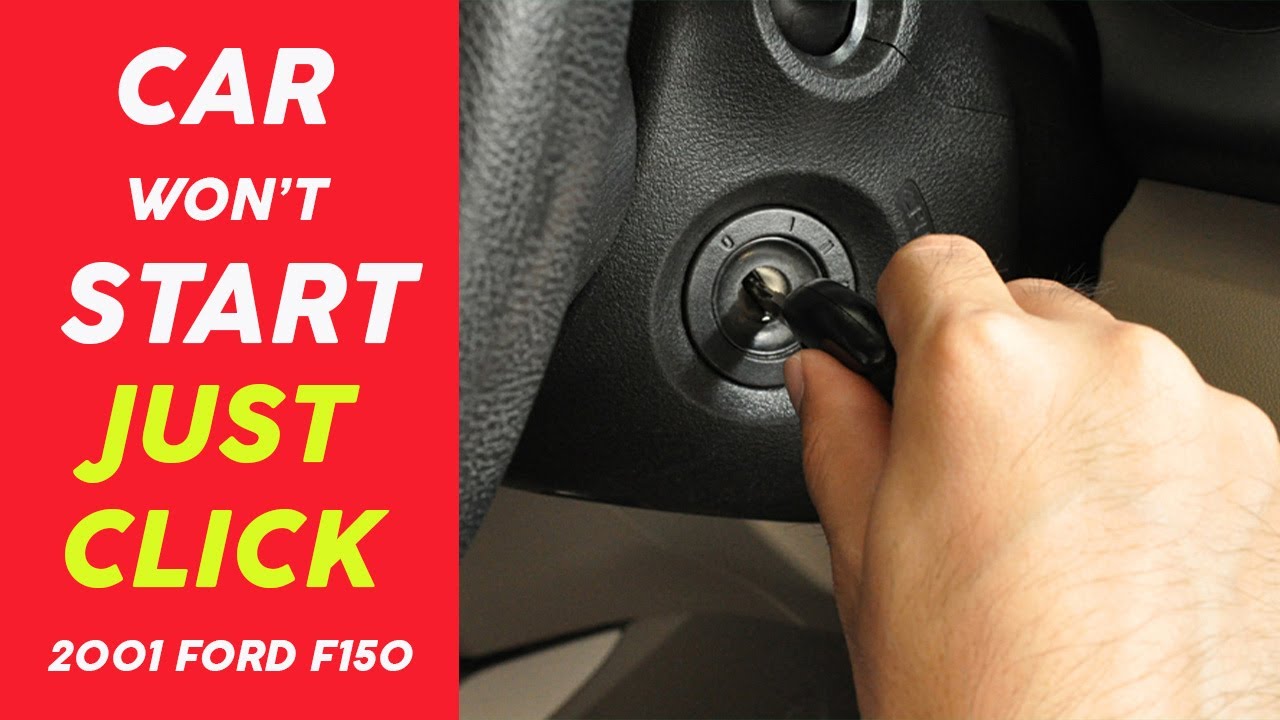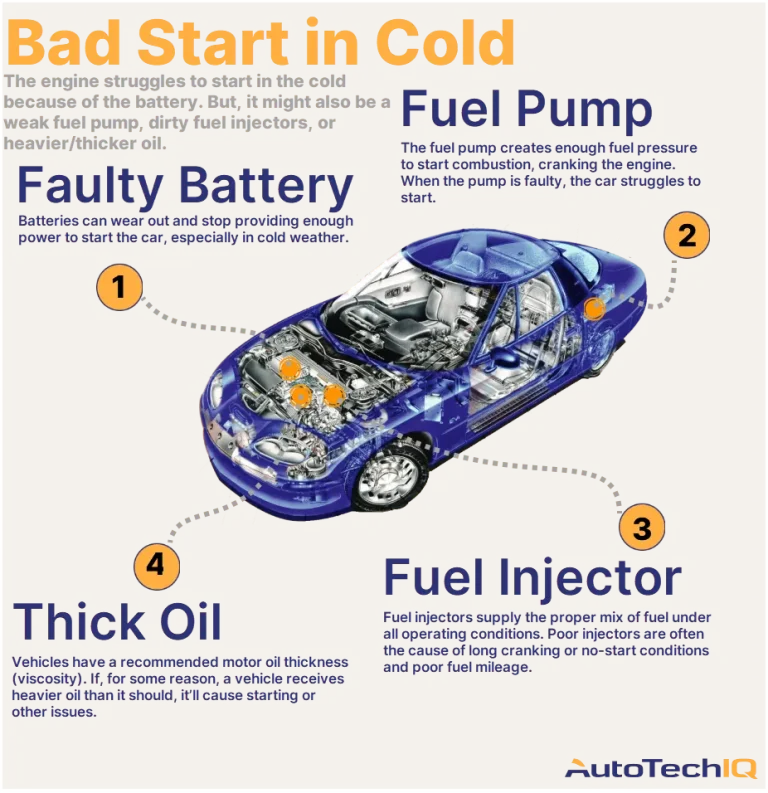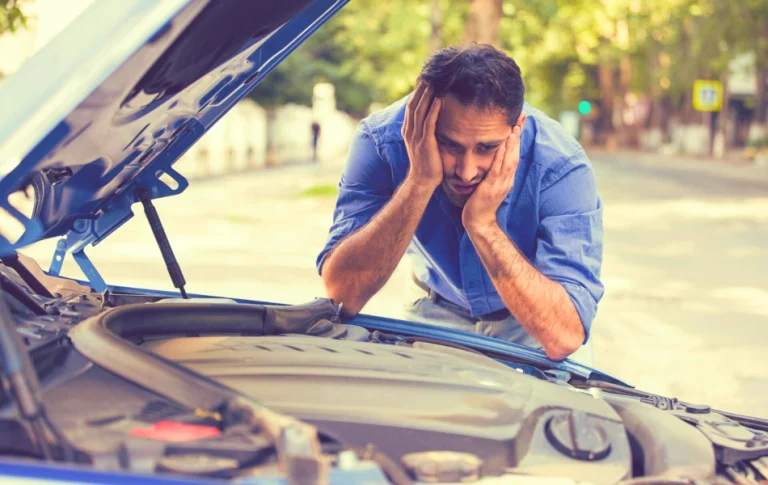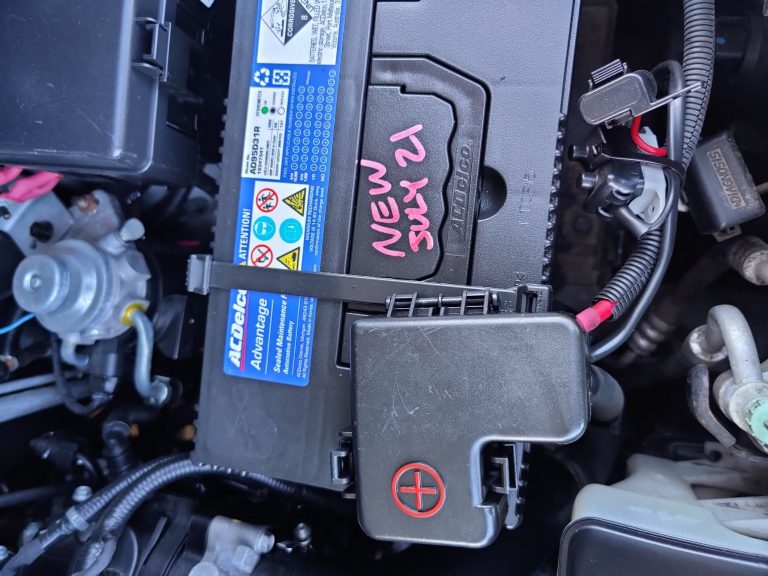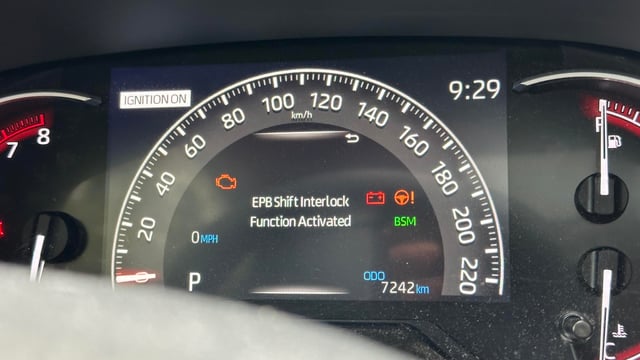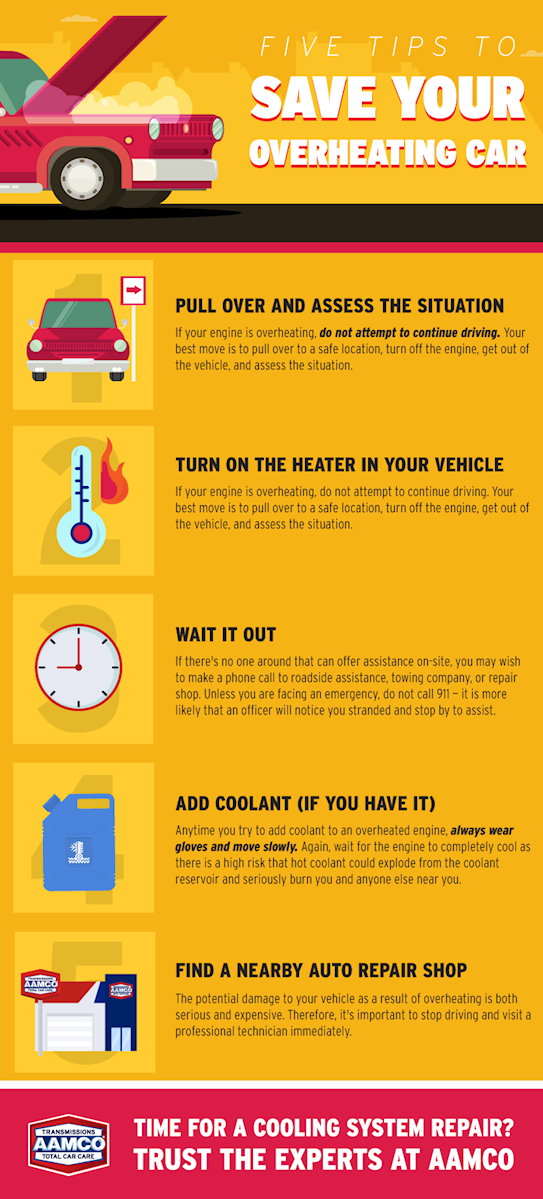Car Won’t Start One Click Then Nothing: Quick Fix Guide
You turn the key in your car’s ignition, expecting the usual hum of the engine. Instead, you hear just one click and then…
Nothing. This frustrating scenario can leave you feeling stranded and stressed. But don’t worry—you’re not alone. Many drivers experience this issue, and understanding what’s happening can empower you to take action. We’ll delve into the common reasons behind that single, ominous click.
Whether it’s a simple fix or something more complex, knowing the possibilities can save you time, money, and a whole lot of frustration. Stick with us, and by the end, you’ll have a clear path forward to getting your car back on the road.
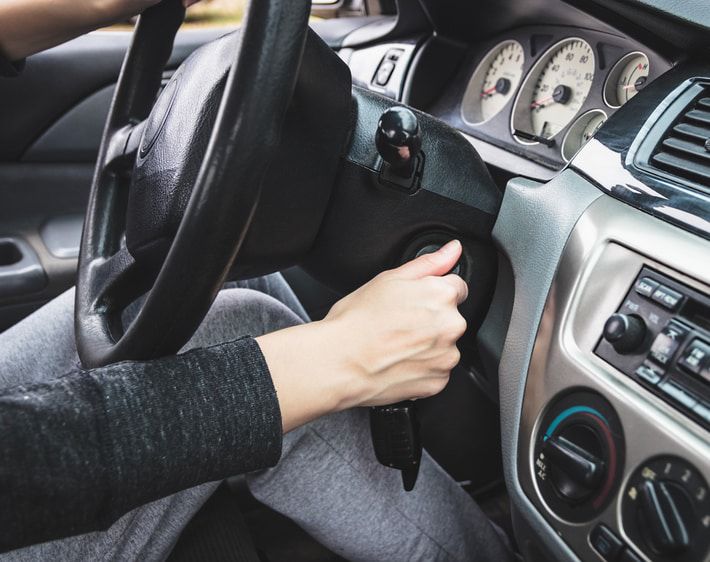
Credit: www.firestonecompleteautocare.com
Car Won’t Start One Click Then Nothing
Common Causes
Facing a car that won’t start can be frustrating. One click, then nothing. This situation might seem daunting, but it’s often due to common issues. Understanding these causes can help you address the problem efficiently.
Read more: Nissan Altima Not Starting: Troubleshooting Tips
Dead Battery
A dead battery is a frequent culprit. It might be old or drained. Check for corrosion on the terminals. Ensure connections are tight and clean. If the battery is old, replacement might be necessary.
Faulty Starter Motor
The starter motor could be the issue. It engages the engine when you turn the key. If it fails, the engine won’t start. Listen for a clicking sound. This may indicate a failing starter motor.
Bad Ignition Switch
An ignition switch problem might prevent starting. This switch sends power to the starter motor. If it’s faulty, the car won’t start. Check for wear or damage in the switch.
Blown Fuse
A blown fuse can stop your car from starting. Fuses protect electrical components. If a fuse blows, it breaks the circuit. Inspect the fuse box and replace any blown fuses.
Fuel System Issues
Fuel system problems might cause starting issues. Lack of fuel in the tank is one reason. A blocked fuel filter can also stop fuel flow. Ensure the fuel pump is working properly.
Read more: Hyundai Sonata Won t Start: Troubleshoot & Fix Fast
Security System Malfunction
A malfunctioning security system may block starting. These systems prevent theft but can sometimes fail. Check the car manual for troubleshooting tips. Ensure the remote key is functioning.
Battery Cable Problems
Loose or damaged battery cables might hinder starting. These cables connect the battery to the car’s electrical system. Ensure they are secure and undamaged. Replace if necessary.
Battery Issues
A car that won’t start can be frustrating. Often, the battery is the culprit. Understanding battery issues can help you diagnose the problem quickly.
Batteries can lose charge or become faulty over time. Knowing the signs of a weak battery is crucial. Let’s explore common battery-related problems.
Signs Of A Dead Battery
A dead battery often presents clear signals. One click and nothing happens. This usually means insufficient power to start the car.
Dim headlights or no interior lights can also indicate a dead battery. If your car’s electrical components are sluggish, check the battery first.
Corroded Battery Terminals
Corrosion on battery terminals can disrupt the power flow. This can prevent your car from starting.
A visual inspection can reveal white or green deposits on terminals. Cleaning these can sometimes solve the problem. Use a brush and baking soda solution for cleaning.
Battery Connections
Loose battery connections can cause starting issues. Ensure the terminals are secure.
Tighten any loose connections with a wrench. This might restore the power needed to start your car.
Battery Age
Older batteries often fail without warning. Most car batteries last around 3-5 years.
If your battery is older, consider replacing it. Regular checks can help you avoid unexpected failures.
Battery Testing
Testing the battery can confirm if it’s the problem. Use a multimeter to measure voltage.
A healthy battery should show around 12.6 volts. Anything less might indicate a need for replacement or recharge.
Starter Motor Problems
A click sound but no engine start often points to starter motor issues. This vital component may fail due to wear or electrical problems. Addressing starter motor problems promptly can prevent further damage and ensure your car starts smoothly.
When your car won’t start and you hear just one click, it can be frustrating. You wonder what went wrong. One common culprit is the starter motor, a crucial component that gets your engine going. Understanding starter motor problems can save you time and money.
What Is The Starter Motor?
The starter motor is a small but powerful electric motor. Its job is to turn the engine over and get it running. Without it, your car won’t start.
Imagine trying to start your day without coffee. That’s how your car feels without a functioning starter motor.
Signs Of A Faulty Starter Motor
You might hear a single click, or nothing at all, when turning the key. This is often a sign of starter motor trouble.
Have you checked the battery? A weak battery can mimic starter motor issues. Make sure your battery is fully charged.
Common Starter Motor Problems
One common issue is worn-out internal components. Over time, they simply wear out and stop functioning properly.
Loose connections can also cause problems. If wires connected to the starter motor are loose, it won’t work as it should.
Testing The Starter Motor
Testing the starter motor can be simple. You can use a multimeter to check for power. A little technical know-how goes a long way here.
If you’re unsure, it might be time to call a professional. Avoid costly mistakes by seeking expert advice.
Replacing The Starter Motor
Replacing it isn’t always a DIY job. It requires special tools and skills. Consider your comfort level before diving in.
A mechanic can get the job done quickly. But if you’re up for the challenge, follow a detailed guide.
Preventing Starter Motor Issues
Regular maintenance is key. Keep your car in top shape to avoid starter motor problems.
Check connections and battery health regularly. Small steps can prevent big headaches.
Are you ready to tackle your car’s starting issues? The starter motor might just be the first place to look.

Credit: www.youtube.com
Ignition System Failures
Your car might not start due to ignition system failures. This often results in a single click sound without engine turnover. Common causes include faulty spark plugs, a dead battery, or a malfunctioning starter motor. Identifying these issues early can save time and prevent further damage.
Experiencing a car that won’t start can be frustrating, especially if you hear just one click and then silence. This situation often points to potential failures in your ignition system. Understanding these failures can help you diagnose and solve the problem quickly. Let’s dive into the intricacies of ignition system failures and how they can affect your car starting up.
A common culprit for ignition system failure is a weak or dead battery. When you hear just one click, it might mean the battery doesn’t have enough power to turn the engine over. Check your battery terminals for corrosion or loose connections. A simple cleaning or tightening could be all it takes to restore power.
Faulty Starter Motor
If your battery is in good condition, the starter motor could be the issue. The starter motor is responsible for cranking the engine. A malfunctioning starter might produce a single click sound, indicating it’s struggling to engage. Consider having it tested and replaced if necessary.
Ignition Switch Problems
Sometimes, the problem lies with the ignition switch itself. This switch activates the starter motor when you turn the key. A worn-out switch might not send the right signal, resulting in a click and nothing more. If your key feels loose or you need to jiggle it to start your car, replacing the ignition switch might solve the problem.
Alternator Troubles
An alternator that isn’t working properly can also lead to ignition system failures. The alternator charges the battery while the engine runs. If it’s faulty, your battery might not be receiving enough charge, causing it to die unexpectedly. Listen for unusual noises or flickering lights on your dashboard, which can indicate alternator issues.
Wiring And Connections
Electrical problems within the wiring and connections can disrupt the ignition process. Inspect the wiring for any visible damage, and ensure all connections are secure. Even a small disconnection can prevent your car from starting.
Personal Experience: The Surprise Of A Loose Battery Cable
One morning, I faced the dreaded one-click scenario. Frustrated, I popped the hood and noticed a loose battery cable. A quick tightening was all it took to get my car running again. This taught me the importance of checking simple connections before assuming a major problem.
Have you ever wondered how much a tiny oversight can affect your day? Ensure your ignition system is regularly checked to prevent surprises.
By understanding these aspects of ignition system failures, you can better prepare for unexpected car troubles. What steps will you take to safeguard your ignition system today?
Simple Troubleshooting Steps
Experiencing a single click when starting your car can be frustrating. Check the battery connections for any corrosion. Inspect the starter motor and relay for faults. Make sure your car is in ‘Park’ or ‘Neutral. ‘ Ensure the ignition switch functions properly.
When your car won’t start and all you hear is a single click, it can be frustrating. But don’t worry, simple troubleshooting steps can often solve the problem. You don’t need to be a mechanic to try these. Just a bit of patience and willingness to get your hands slightly dirty.
You might be surprised how often a straightforward check can fix things.
Think about the last time you faced a minor issue at home, and by just taking a closer look, you found a simple solution. The same approach can be applied here.
Check The Battery Connections
First, inspect your battery connections. Loose or corroded connections can prevent your car from starting.
Grab a wrench and ensure the connections are tight. If there’s corrosion, clean it off with a wire brush.
A secure connection might be all it takes to bring your car back to life.
Test The Battery Voltage
A weak battery can lead to starting issues. Use a multimeter to check the battery voltage.
If the reading is below 12.6 volts, your battery might need a charge or replacement.
It’s a quick test that can save you from unnecessary stress.
Inspect The Starter Motor
The starter motor plays a crucial role in starting your car. If the battery is fine, the starter might be the culprit.
Listen for unusual noises when you turn the key. A grinding sound could indicate a problem with the starter.
Consider consulting a professional if you suspect starter issues, as they require more technical expertise.
Examine The Ignition Switch
The ignition switch is another component that could fail. Turn the key and observe if the dashboard lights up.
If not, the switch might be faulty. Replacing an ignition switch is more complex but identifying the issue early can prevent further complications.
Assess The Fuses
Sometimes, a blown fuse can be the reason your car won’t start. Locate the fuse box and check for any blown fuses.
Replacing a fuse is straightforward and could be the quickest fix.
A small detail can often be the root of the problem.
Consider Fuel Supply Issues
Ensure your car has fuel. It sounds obvious, but an empty tank is a common oversight.
Listen for the fuel pump when you turn the key. If silent, there might be a problem with fuel delivery.
A quick check can prevent you from pondering why your car won’t start.
Reflect On Recent Weather Conditions
Cold weather can affect your car’s starting ability. If it’s particularly chilly, the battery might struggle.
Try jump-starting your car and see if it turns over. This might be all you need to combat the cold.
Have you ever faced a similar situation during winter? It’s more common than you think.
By tackling these steps, you can often find the solution to your car troubles. Take a methodical approach and you’ll likely identify the issue. If the problem persists, professional help might be necessary, but starting with these simple steps can save time and money.

Credit: www.mycommunityhonda.com
Frequently Asked Questions
Why Does My Starter Click Once Then Nothing?
A single click noise often indicates a dead battery or faulty starter solenoid. Check battery connections and charge. If the problem persists, inspect the starter or seek professional help.
Why Does My Car Make One Click Sound But Won’t Start?
A single click sound often indicates a dead battery or faulty starter. Check the battery connections for corrosion or looseness. If the battery is fine, the starter might need replacement. Regular maintenance can prevent these issues. Always consult a mechanic for accurate diagnosis and repairs.
What Does A Single Click Mean When Starting A Car?
A single click when starting a car often indicates a dead battery or faulty starter. It signals insufficient power to start the engine. Check the battery connections, charge the battery, or consult a mechanic if the problem persists. Regular maintenance helps prevent starting issues.
When I Turn The Key In The Ignition, Nothing Happens.?
Check the battery and make sure it’s charged. Inspect the starter motor for faults. Verify connections and fuses. Ensure the ignition switch works properly. Consider consulting a mechanic for further diagnosis.
Why Does My Car Click But Not Start?
The click sound often means a weak battery. Check battery connections and charge or replace if needed.
Conclusion
Facing a car that won’t start is frustrating. One click, then nothing. It’s a common issue. Many factors can cause it. Battery problems are frequent culprits. Starter issues are another possibility. Check connections too. Regular maintenance can prevent surprises. Keep tools handy for quick checks.
Always consult a professional for complex issues. Safety first. Understanding your car’s signals helps avoid future problems. Stay calm, and troubleshoot step-by-step. With patience, you’ll find the solution. Keep learning about your vehicle. It makes you a more confident driver.

